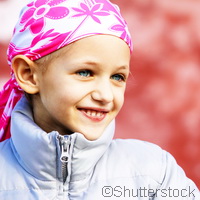Putting EU cancer legislation in the spotlight
Children and adolescents diagnosed with cancer face an additional challenge: EU legislation has had a negative impact on the treatment received by these patients. This is the message that was presented at International Childhood Cancer Day, a European Parliament event that brought together key figures in Brussels, Belgium on 15 February. Hosted in association with the European Society for Paediatric Oncology (SIOPE), the meeting's primary objective was to increase awareness of the issues children with cancer and their caregivers confront as a result of the EU Clinical Trials Directive (CTD). Since its introduction eight years ago, the Directive (2011/20/EC) has not been welcomed by everyone. Many believe it adversely affects academic-led clinical research in Europe. 'EU countries are still using different standards for clinical trials, which means researchers have to apply multiple times for a clinical trial, with different applications,' says Member of the European Parliament (MEP) Glenis Willmott, who hosted the event. As a result, the entire process not only takes a lot of time to complete, but it also burns larger holes in pockets and at times it is all for naught. 'That's why we want to make sure all EU countries are playing by the same rules,' MEP Willmott says. 'We need to do everything we can to encourage more research and more clinical trials, specifically designed for children and adolescents.' The directive's aim was to standardise the regulation and quality of trials, but two specific factors have proved troublesome: coordination has not been up to par and there is too much red tape. The EU CTD requirements have not readily been met, particularly for non-commercial investigator-led, multinational trials. The European Commission is currently re-examining the CTD. Sources say the European Parliament and the Council will be presented with a proposed revision in September of 2012. Experts point out that while each major type of childhood cancer is individually rare, 1 in 500 patients will be affected by cancer during childhood. Cancer is still the number one cause of death for children and young adults. Clinical trials on cancer have provided the evidence base on which current best practice is built; they are complex treatments. It should be noted that thanks in part to established international networks, treatment protocols have been harmonised. This has essentially knocked down walls, enabling the performance of high-quality clinical trials. Data show that some 80% of young people survive cancer. This is a huge feat, considering that less than 20% of patients survived cancer 40 years ago. Commenting on what is lacking and what should be done, SIOPE President Dr Ruth Ladenstein says: 'While clinical research is a necessary tool to combat the burden of cancer, the current bureaucratic workload of trial activation in Europe is much too high. Moreover, we are dependent on the pharmaceutical industry to apply for licensed indications and there currently is no economic interest, nor sufficient incentive for the industry to engage in this field of off-patent drug development, especially given the rarity of childhood cancers. 'It is paramount that the European Commission takes a reasonable approach when addressing the associated risk of standard care drugs in off-label use that have proven to be successful in orphan indications like paediatric cancer.' The ENCCA ('European network for cancer research in children and adolescents') and PANCARESURFUP ('Pancare childhood and adolescent cancer survivor care and follow-up studies') funded the event. Both projects are funded under the Health Theme of the EU's Seventh Framework Programme, to the tune of EUR 12 million and EUR 6 million, respectively.For more information, please visit: European Society for Paediatric Oncology (SIOPE): http://www.siope.eu/(opens in new window) ENCCA: http://www.encca.eu/(opens in new window) PANCARESURFUP: http://www.pancaresurfup.eu/(opens in new window)
Countries
Belgium



